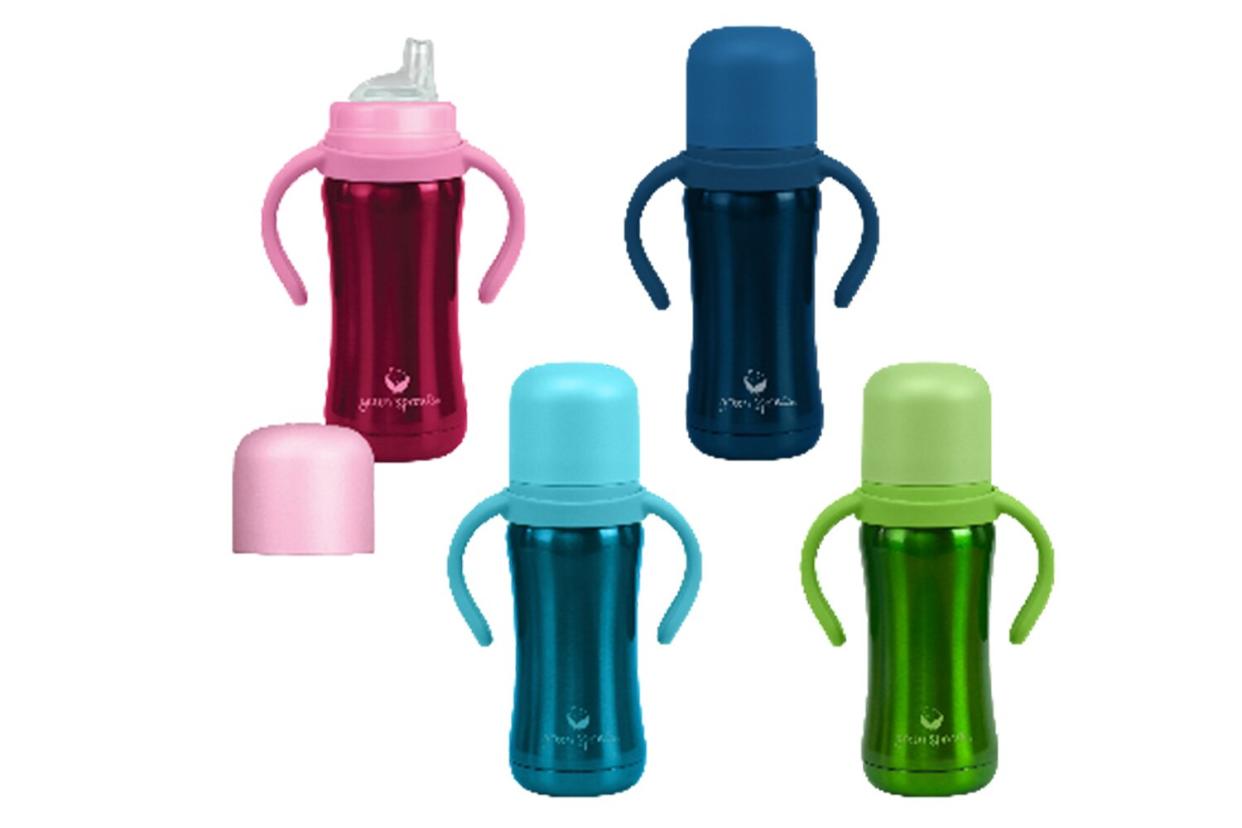More Than 10,000 Toddler Bottles and Sippy Cups Recalled Due to Lead Poisoning Hazard

CPSC
Green Sprouts has issued a voluntary recall on about 10,500 toddler cups and bottles due to a lead poisoning hazard.
On Friday, the company announced that the recall involves its 6 oz. Stainless Steel Sippy Cup, 6 oz. Sip & Straw Cup and 8 oz. Stainless Steel Straw Bottle, according to a notice from the U.S. Consumer Product Safety Commission.
"The recalled stainless-steel bottles and cups bottom base can break off, exposing a solder dot that contains lead, posing a lead poisoning hazard to the child," the alert stated. "Lead is toxic if ingested by young children, and can cause adverse health effects."
CPSC reported seven incidents of the bottles' base breaking off exposing the solder dot, but no injuries were reported.
Green Sprouts said the CPSC-approved third party lab that approved the bottles didn't test that component of their products because that part is inaccessible under normal use.
"Had we been aware that a component containing lead in these products could become accessible, we wouldn't have put them on the market," the company said in a statement. "There is negligible risk to the health and safety of users. We are undertaking the costs and challenges of this recall voluntarily because our customers' health and safety must come first."
RELATED: Approximately 87,000 Disney-Themed Clothing Sets Recalled Due to Lead Poisoning Hazard
"As we approach the redesign of these products, we will ensure that lead is not used as a soldering material, no matter whether it would be accessible," the statement continued.
Customers who purchased the recalled products are urged to immediately take the bottles and cups away from children and dispose of them. Additionally, customers can contact Green Sprouts for a full refund.
Never miss a story — sign up for PEOPLE's free daily newsletter to stay up-to-date on the best of what PEOPLE has to offer, from juicy celebrity news to compelling human interest stories.
According to the FDA, most intentional uses of lead in products and processes are banned in the United States, including the "use of lead solder to seal the external seams of metal cans."
However, the agency says that lead can contaminate our food supply because it is non-biodegradable. Lead exposure can affect all ages, but it can affect children more because it can harm their health and development, specifically the brain and nervous system.
"Neurological effects from high levels of lead exposure during early childhood include learning disabilities, behavior difficulties, and lowered IQ," the FDA states. "Because lead can accumulate in the body, even low-level chronic exposure can be hazardous over time. For adults, chronic lead exposure is associated with kidney dysfunction, hypertension, and neurocognitive effects."

